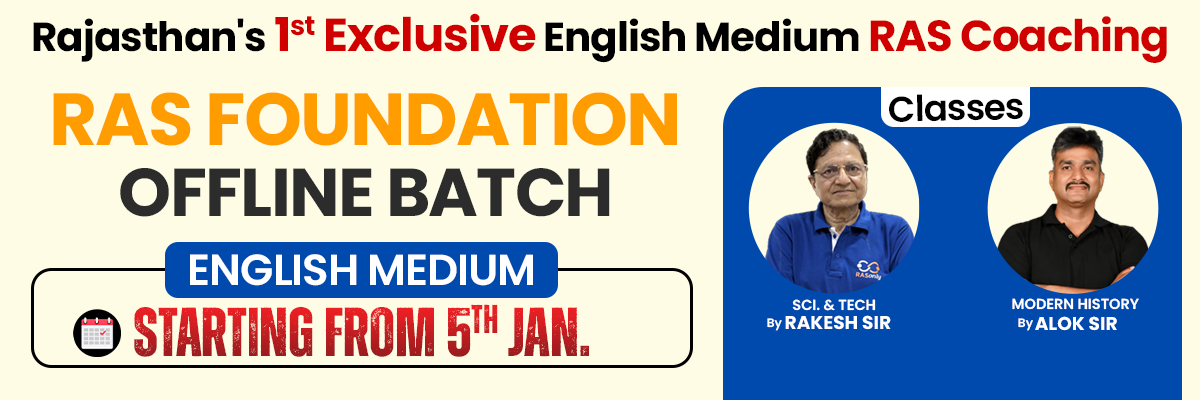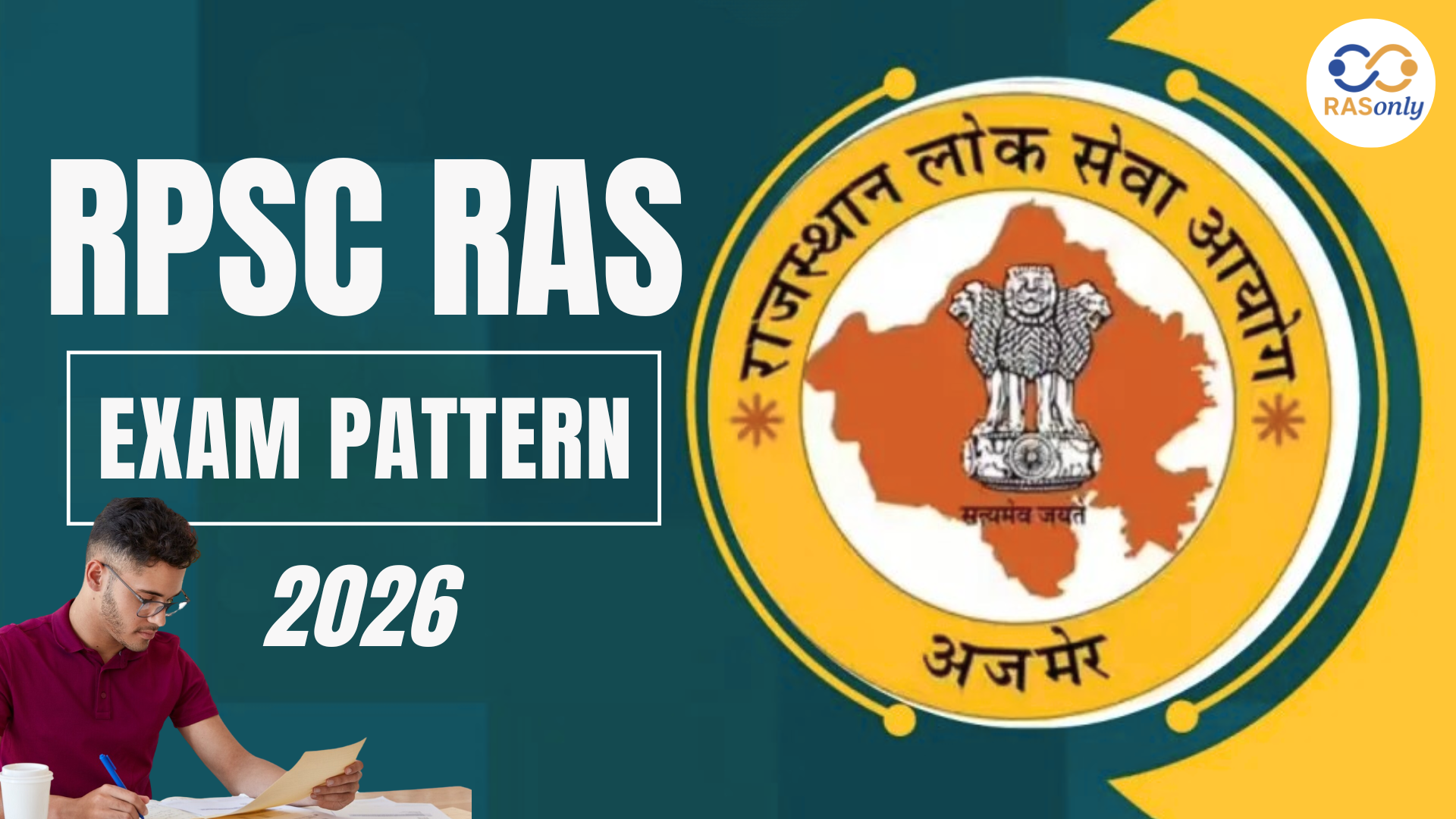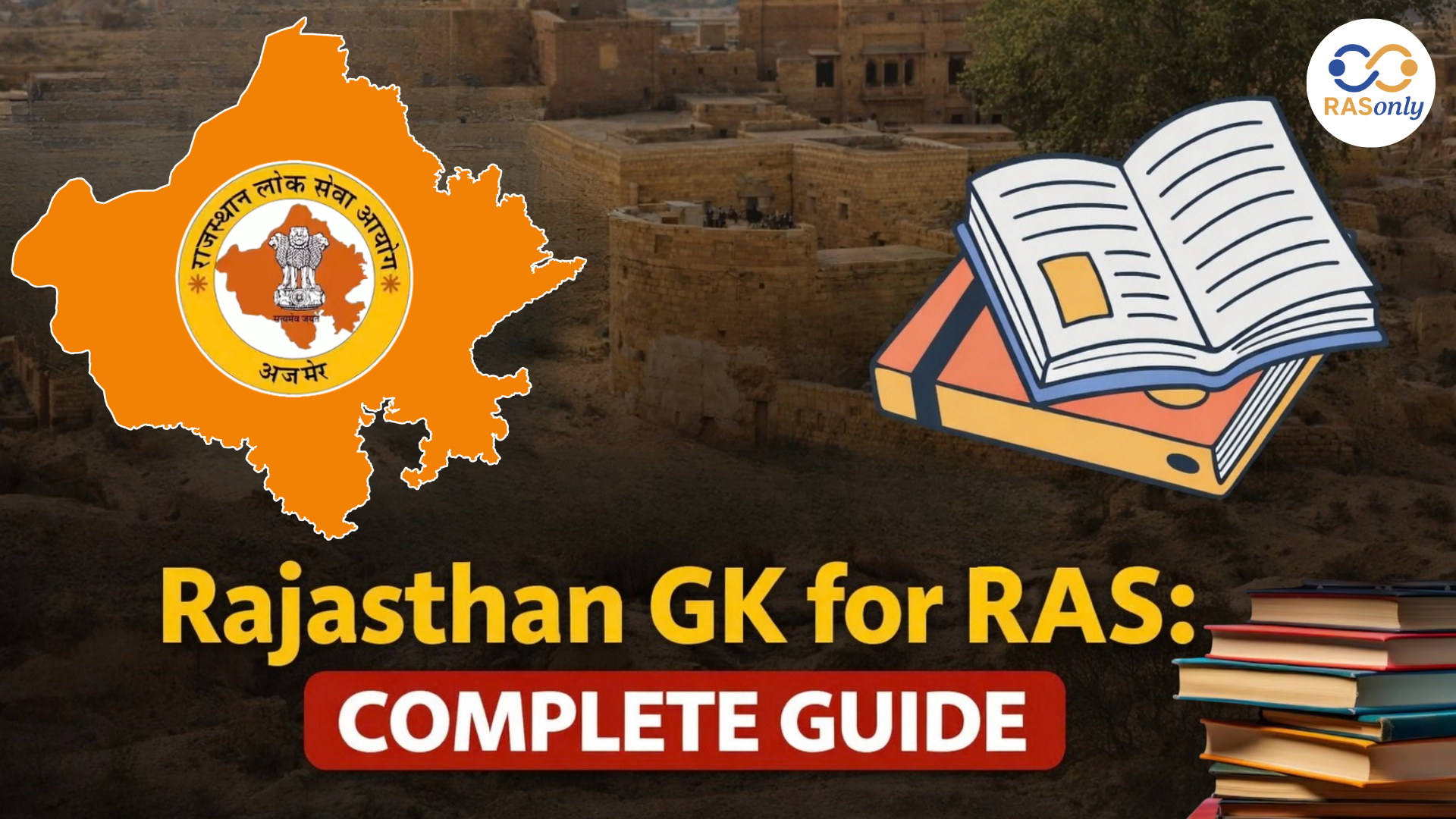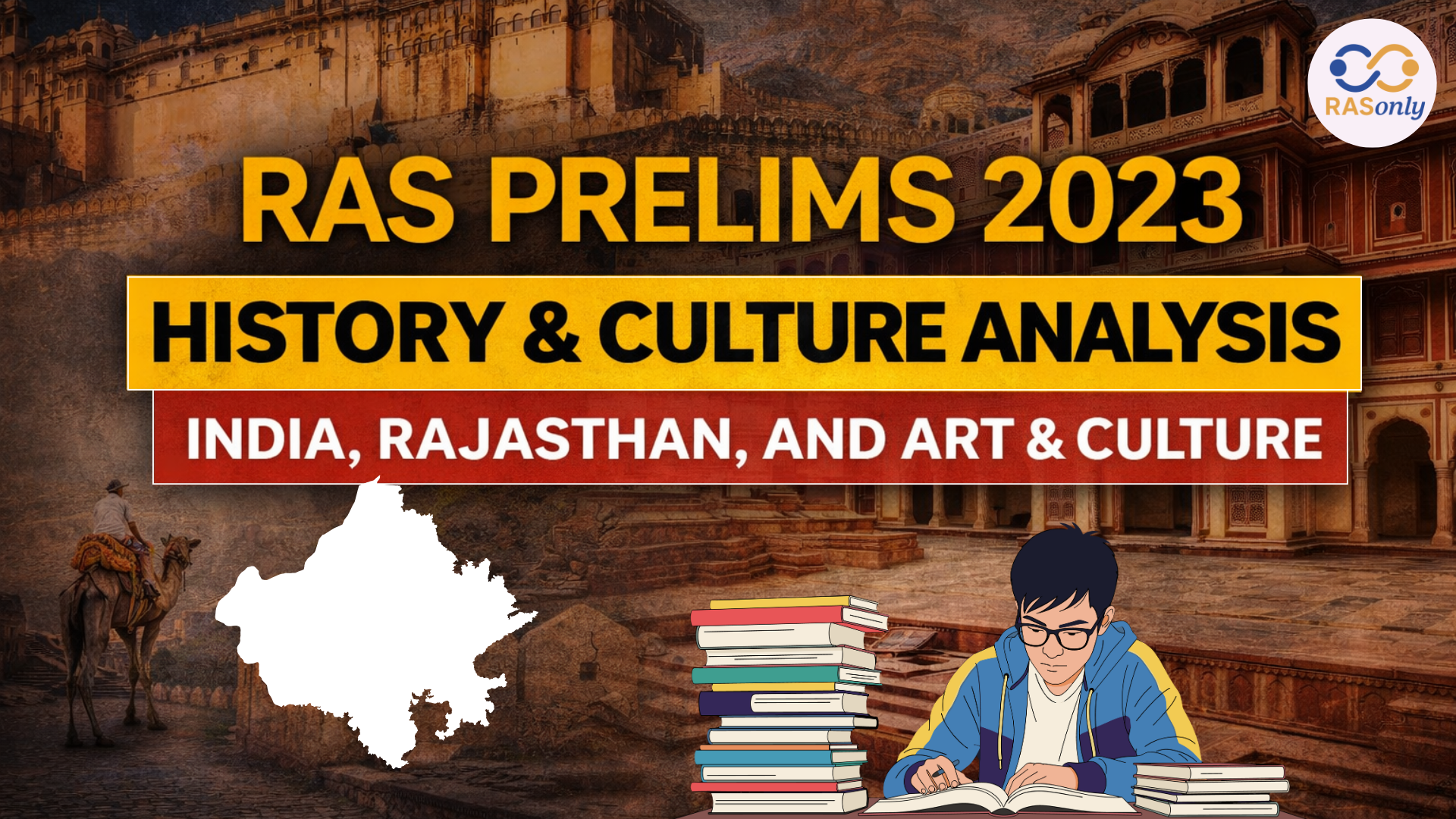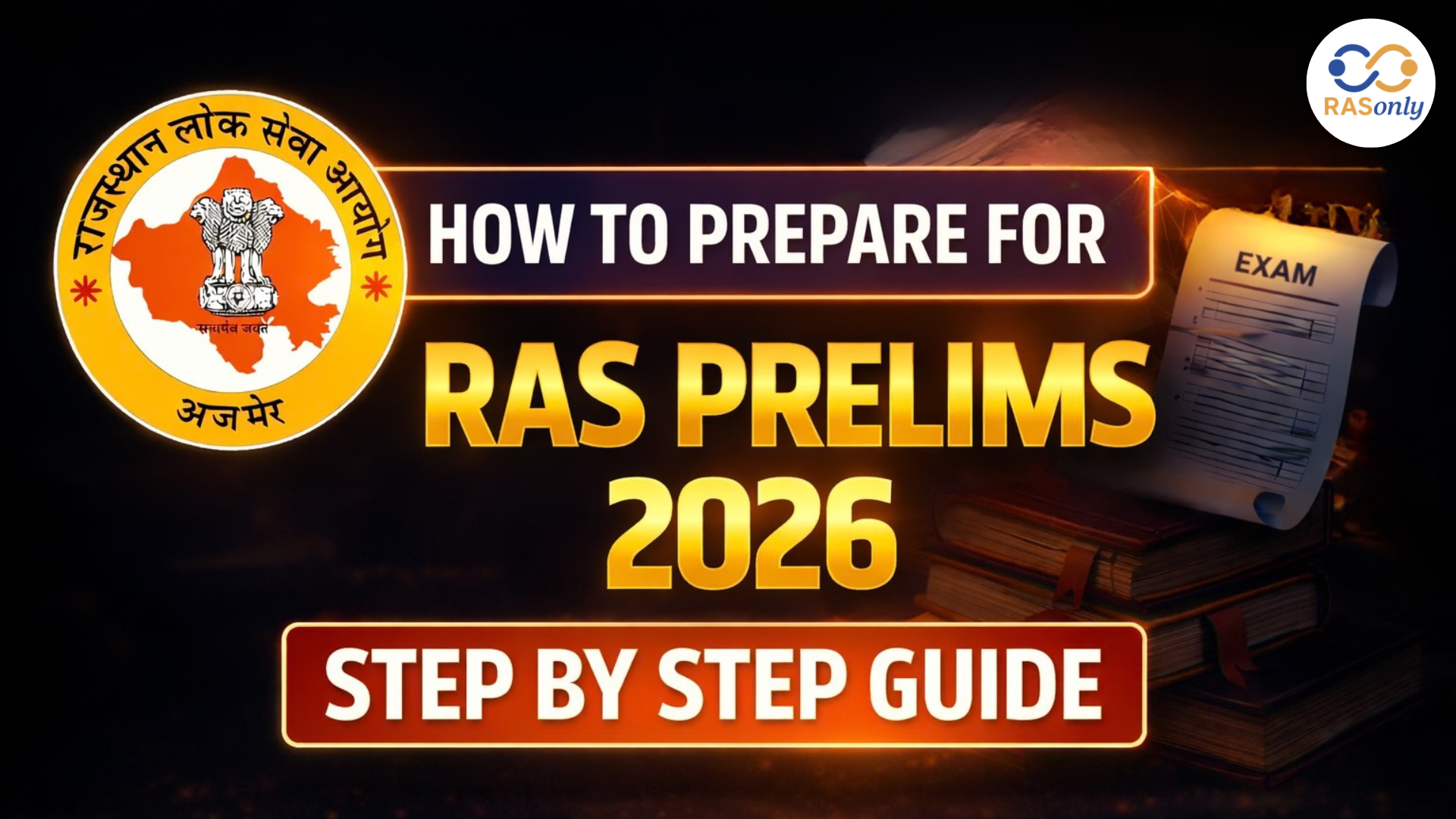RPSC RAS 2026 Subject Wise Exam Pattern for Prelims, Mains & Interview Details
- >
- RAS Preparation Resources
- >
- Folk Songs of Rajasthan
Folk Songs of Rajasthan

Get in Touch with RASonly!

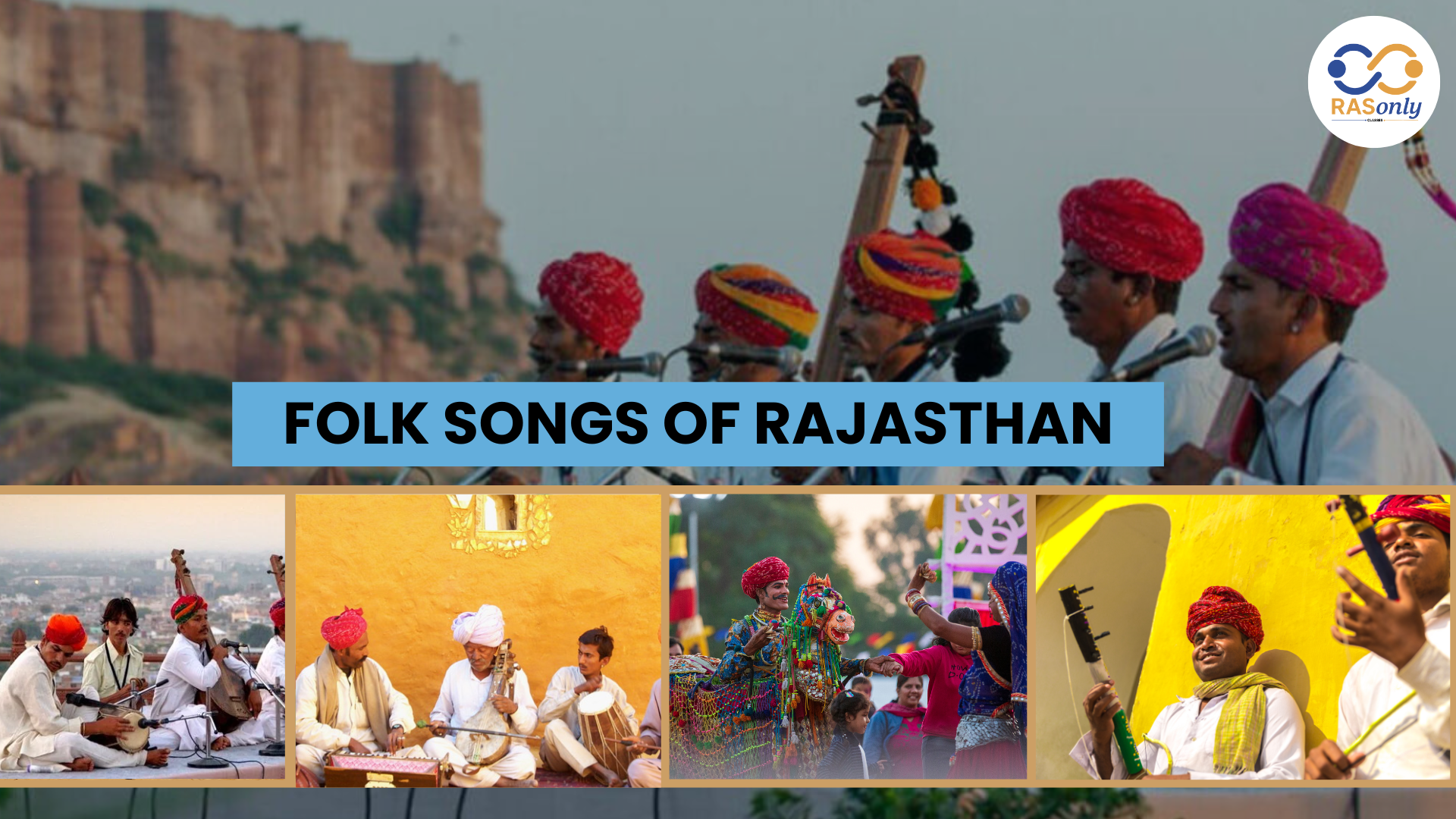
The Rajasthani folk is a beautiful outcry of the sentiments, cultural aspects and the day-to-day existence of Rajasthanis. They were transmitted by oral tradition over the generations representing the cultural richness of the state, and they are crucially important in keeping the heritage of the state. The songs present the Rajasthani society in the form of love and devotion as well as valor and spirituality.
Key Highlights for RAS Mains
What is a folk song?
- Indian folk music is very much connected with the life of the community and captures the feelings, the social activities and the experience of the society.
- It mostly deals with issues of love, sadness, rites, festivities and societal speech.
History of Folk Music India
- Vedic Earlier References and Roots
- In India, the first descriptions of folk music can be found as the Vedic literature (1500 BC).
- These writings mention chants, hymns, and ritual songs as a great number of them were of folk origins.
Classification of Rajasthani Folk Songs
1. The Song of Common People
They are sung by the lay people during several social events and these are further categorized into sub- categories:
- A. Sanskar (Life-Cycle) Songs
- They are followed by rituals such as birth, marriage and motherhood:
- Among them: Sagai, Badhawa, Haldi, Ratajga, Bana-Bani, Vara Nikasi, Kanwar Kaleva, Bindola, Jacha.
- B. Festival Musics
- It is sung during the occasions of Teej, Gangaur, Holi and Diwali:
- Rasiya, Hori, Dhamaal.
- C. Songs about the Seasons.
- Catch the seasonal variations and the nature of surroundings:
- Phag (Spring), Kajali (Rainy season), Chaumasa ,Barah Masa (Peacock), Badli (Cloud) are some examples.
- D. Religious songs
- Sung at spiritual events and devotional in nature:
- Languria, Teja, Chiraja, Harjas
- E. Miscellaneous songs
- Depending on daily activities, nature or feelings:
- Panihari, (women who carry water), Lur, (lullaby), Kaga, (crow), Kurjan, (crane), Olun, Supana.
2. Professional Folk Songs
- Played by people who were engaged in music as a profession in the royal periods. These are hero ballads and celebration songs.
- Important Communities of Musical tradition: Manganiyar, Langa, Dholi, Mirasi, Bhat, Kalbeliya, Kamad, Jogi.
- Used Ragas of Music: Mand, Maru, Sorath, Peelu, Bilawal, Jogiya.
- Sindhu and Maru ragas were taken only to be used with war-time heroic songs.
3. Regional folksongs
There is variation in folk styles according to the geography of Rajasthan:
- A. Desert Area (Barmer, Jaisalmer, Bikaner)
- Kurjan, Peepli, Mumal, Ratan Rano, songs
- Features: Squeaky with a large melodic range, which echoes the being out in the wide desert.
- B. Hilly Terrain (Udaipur, Dungarpur Pratapgarh)
- It has the following songs: Patelya, Machhar, Nokhila, Thaari Oonta Ri Aswari
- Cooking ingredients: Tribal overtones, collective singing, rustic sounds.
- C. Flat Land (Jaipur, Kota, Alwar, Bharatpur)
- Themes: Devotion, Romantic love
- Aspects: Intense feeling, separation and migration.
Famous Folk Songs and Their Themes
| Song | Theme |
|---|---|
| Kesariya Balam | Longing and love; Rajasthan’s iconic welcome song |
| Kurjan | Separation and sending messages via birds |
| Panihari | Women fetching water, symbolic of devotion |
| Mumal, Dhola–Maru | Romantic ballads and legends |
| Chirmi | Nostalgia and homesickness for the parental home |
| Hichki, Kaga | Hiccups and omens; expressions of longing |
| Peepli | Wives awaiting their husbands’ return during Teej |
| Gorbandh | Songs sung while adorning camels |
| Suvatio | Parrots used to send love messages |
| Humsidho | Tribal harmony and community spirit |
| Badhawa, Kaman, Pavana, Sithane | Ritualistic and ceremonial songs |
Major Folk Music Styles
1. Mand Style
- Origin: Jaisalmer
- Sounds: Melodic, depth emotional
- Well Known Artists: Allah Milai Bai, Gawri Bai, Jamila Bano
2. Manganiyar Style
- District: Barmer, Jaisalmer
- Composers: SakarKhan, Kamaycha; Saddik Khan, Khadtal
- Species Heroic ballads and devotional songs
3. Langa Style
- District: Jaisalmer, Barmer
- Kamaycha is the main instrument.
- Popular Song: Nimbuda
4. Taalbandi
- Geographic location: Braj area (Bharatpur, Karauli)
- Main instrument: Nagada
- Characteristics: Rhythms are complex, religious subjects
Musical Gharanas of Rajasthan
| Gharana | Founder / Notes | Notable Artists |
|---|---|---|
| Jaipur-Atrauli | Manrang, Ali Baksh | Mohammad Ali Khan |
| Patiala (Branch) | Fateh Ali | Ghulam Ali Khan |
| Mewati | Sahib Khan | Pt. Jasraj |
| Kirana | Ghaghe Nazir Khan | Bhimsen Joshi, Gangubai Hangal |
| Dagar | Bande Ali Khan | Dagar Brothers |
| Rangila | Ramadan Khan | Amrit Sen |
Importance of folk songs
- Personification of nature: In songs such as Chirmi, Jeera, nature is considered like the family.
- Animal Symbolism: Birds such Kurjan, Kaga take up the role of messengers in love songs.
- Social Functions: Reflect marriage, birth and seasonal customs.
- Cultural Transmission: Sustain a means of imparting oral customs and beliefs.
- Shringar Rasa: Romantic feelings are about sensitivity, which are portrayed keeping dignity.
- Source of livelihood: Communities such as Manganiyars and Langas make a living out of performing.
- Grand Valor: Veer Rasa is sung through songs to determine the warrior colors that Rajasthan embodies.
- Devotion and Faith: Songs of folk deity give spiritual comfort.
- Freedom Struggle: As a country, unity through songs was encouraged and Panchhida was one of the songs that patriotism was inspired by.
- Publicity of Arts: Other folk arts such as Phad, Pichhwai and crafts are encouraged with the help of music.
Conclusion
Rajasthani folk songs are not only musical representations but living traditions which continue the memory of the common people, their beliefs and the pride of the people. They can still amaze, teach, and unite people of different generations serving as the links between the past and the present. They form one of the bases of the intangible cultural heritage of Rajasthan as they are varied between regions and different communities.
Post Category
- RAS Salary
- Result
- RAS Admit Card
- RAS Job
- RAS Cutoff
- Preparation Tips
- RAS Answer Key
- RAS Exam Analysis
- RAS Syllabus
- RAS Previous Year Papers
- RPSC RAS Exam Pattern
- RAS Interview
- RAS Mains Exam Date
- RAS Vacancy
- RAS Test Series
- RAS Best Books
- RAS Preparation Resources
- RAS Coaching Centre
- History
- Polity
- Geography
- Economics
- Science
- Art and Culture
- RPSC RAS Application Form
- RPSC RAS Notification
RASonly Interview Guidance Program

Mr. Ashok Jain
Ex-Chief Secretary Govt of Rajasthan
- IAS officer of the 1981 batch, Rajasthan cadre.
- Passionate about mentoring the next generation of RAS officers with real-world insights.
- Got retired in Dec 2017 from the post of Chief Secretary of the state of Rajasthan.

Mr. Guru Charan Rai
Ex-ASP / SP in Jaisalmer
- Guru Charan Rai, IPS (Retd), retired as Inspector General of Police (Security), Rajasthan, Jaipur in 2017.
- Served as ASP and SP in Jaisalmer, Nagaur, Sri Ganganagar, Sawai Madhopur, Dausa, Sikar, and Karauli.
- He also held key positions as DIGP and IGP in the Law and Order division.

Mr. Rakesh Verma
Ex-IAS Officer, B.Tech, MBA, and M.A. (Economics)
- IAS officer of the 1981 batch and retired in Chief Secretary Rank.
- Civil servant of high repute and vast experience.
- Has been teaching UPSC CSE subjects for the last six years.
Related Post
Daily Current Affairs for RAS Exam Preparation 2026
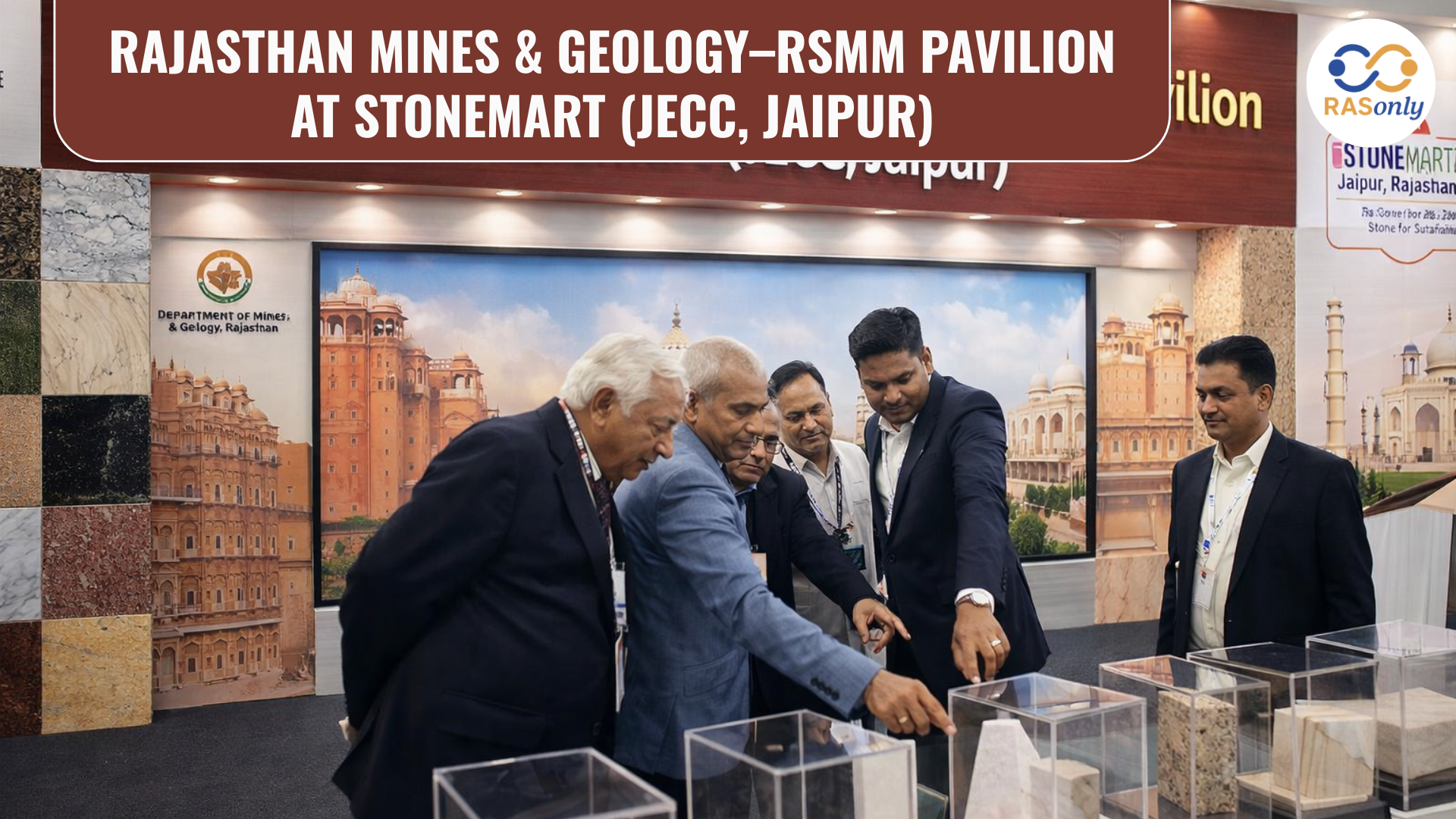
Rajasthan Pavilion Shines at Stone Mart Jaipur 2026
February 07, 2026
Rajasthan Achieves 3,000 MW Under PM-KUSUM Scheme
February 07, 2026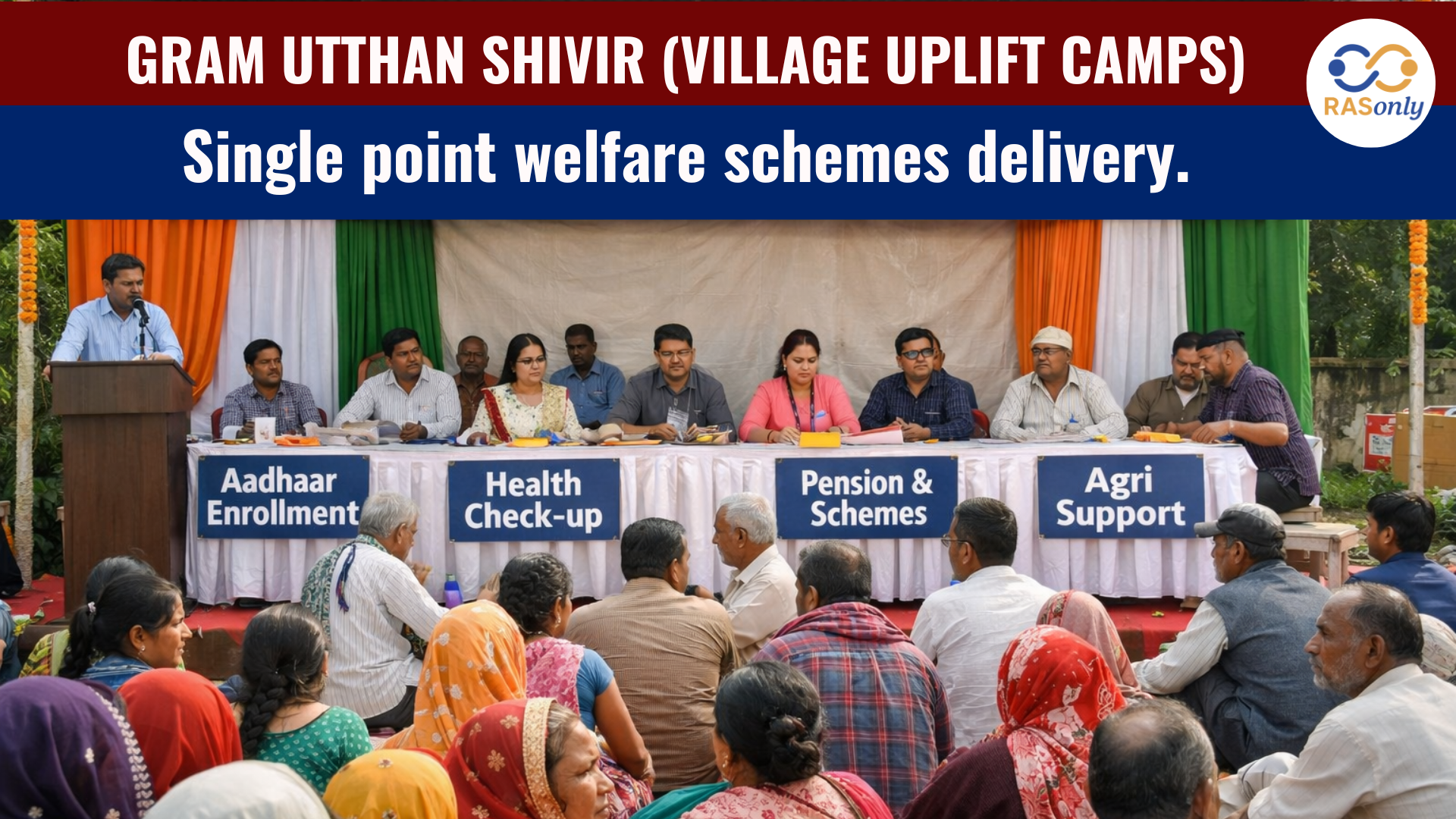
Gram Utthan Shivirs Strengthen Rural Governance in Rajasthan
February 07, 2026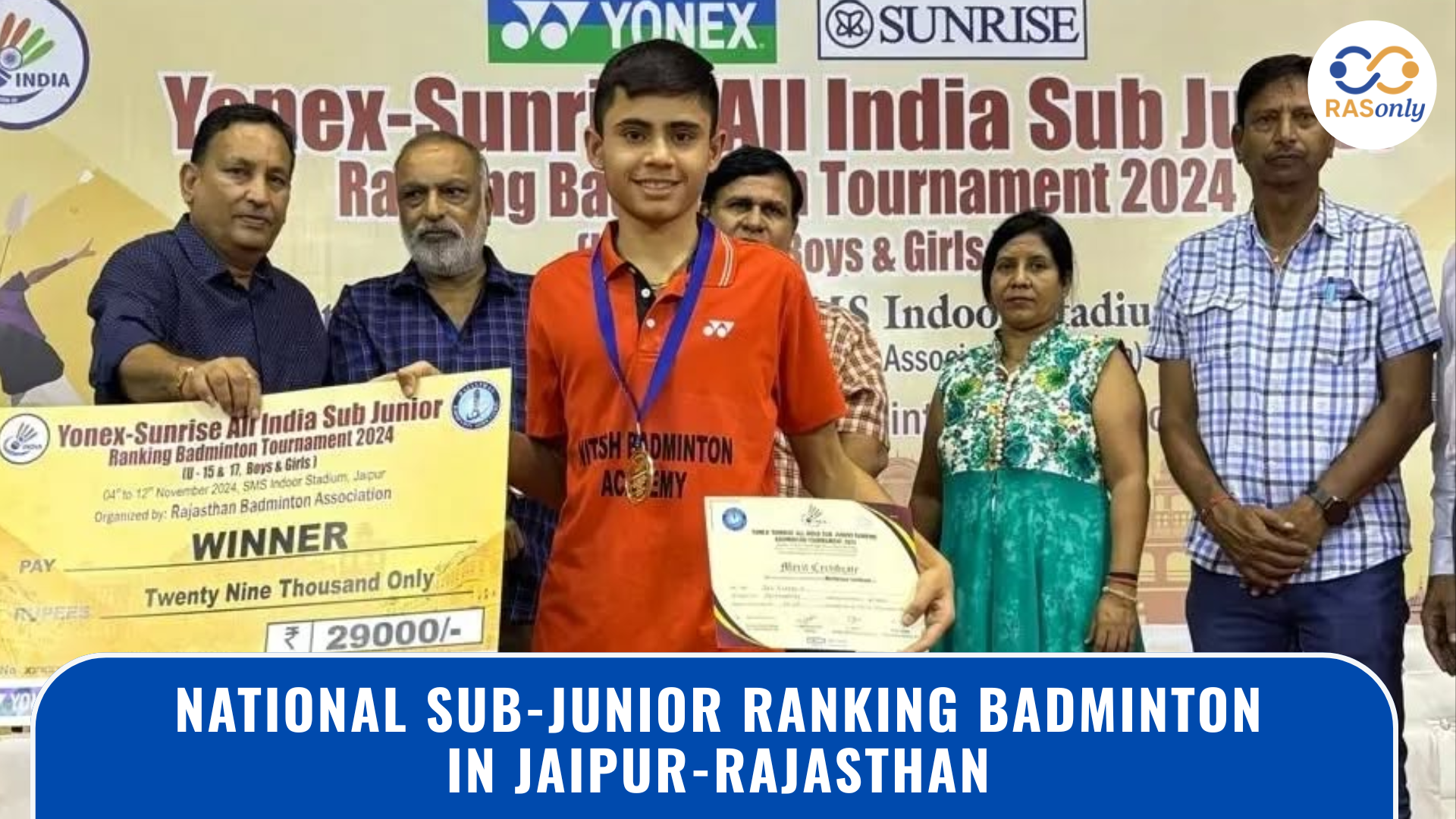
Jaipur Badminton: 72-Minute U-15 Final Creates Record
February 06, 2026👉🏻 Register Today to Join Classes! 👍🏻
- Team RASOnly -
🎯 Benefits of RASOnly Coaching:
- ✅ 1:1 Mentorship with RAS Officers
- ✅ Experienced and Expert Faculty
- ✅ Free Library Access
- ✅ Daily Minimum 4 Hours Must
- ✅ Comprehensive Study Material
- ✅ Regular Tests & Performance Analysis
- ✅ Personalized Guidance & Doubt Solving
- ✅ Online & Offline Class Options
- ✅ Affordable Fees with Quality Education
Key Highlights:
- 👉🏻 3-Day Refund Policy
- 👉🏻 New Batch Starting from 04 August
- 👉🏻 Registration Amount: Only ₹1000




